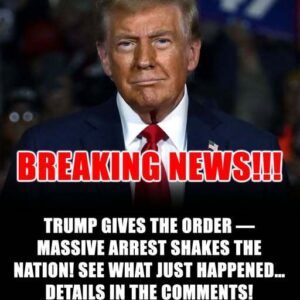Politics Commentary
The political fallout from the House Oversight Committee’s release of roughly 20,000 documents linked to Jeffrey Epstein began almost immediately on Wednesday morning. Within hours of the materials becoming public, members of both major parties were already interpreting the findings in sharply different ways — a predictable outcome given Epstein’s long-standing status as a flashpoint in American politics.
Among the thousands of pages, one exchange from 2011 quickly drew public attention. The email thread involved Epstein and Ghislaine Maxwell, and it referred indirectly to former President Donald Trump. For some Democratic members on the Oversight Committee, the email was highlighted as a noteworthy detail, potentially suggesting a link worth examining. But Republicans countered that the correspondence was old, out of context, and already known to investigators and journalists years earlier.
The contrasting reactions from lawmakers reflect a broader dynamic: each party is trying to frame the document release to its own political advantage, particularly as they navigate a tense post-shutdown climate on Capitol Hill.
What the Email Actually Says
The specific email at the center of the dispute is straightforward. In 2011, Epstein wrote to Maxwell:
“I want you to realize that that dog that hasn’t barked is Trump… [REDACTED VICTIM] spent hours at my house with him, he has never once been mentioned. police chief, etc. I’m 75% there.”
Maxwell’s brief response was:
“I have been thinking about that.”
The redacted name in the email refers to a known Epstein victim, whose identity was removed from the released documents. According to multiple previous court filings — including sworn statements in civil proceedings — that individual is Virginia Giuffre.
Giuffre has publicly stated on numerous occasions, including under oath, that her interactions with Trump consisted solely of meeting him at Mar-a-Lago when she was working there as a teenager. She testified that she had never been trafficked to Trump, never witnessed misconduct by him, and never saw him alone with Epstein in any inappropriate context. She said that, despite Epstein describing Trump as a “friend,” she herself did not see them together.
This context is crucial in understanding why Republicans argue that the resurfaced emails add no new revelations. The information has been public for years, and Giuffre’s statements directly contradict any implication of wrongdoing by Trump.
Why Democrats Highlighted the Email
From the Democratic perspective on the Oversight Committee, the Epstein documents provide an opportunity to examine broader patterns surrounding the disgraced financier’s network and his ability to cultivate influential acquaintances. In that light, even brief email references to high-profile individuals may be considered relevant.
Their interest in the 2011 email appears to stem from the mention of a victim spending time at Epstein’s residence during a period when Trump was allegedly present. Although Giuffre has not accused Trump of misconduct, some Democrats argue that any connection — even benign — deserves scrutiny given the historical questions surrounding Epstein’s relationships with public figures.
However, critics say this selective focus risks misrepresenting context and reviving claims that have already been clarified. They point out that the Oversight Committee’s massive document release contains far more substantive material, including financial records, travel documents, and legal correspondence — yet the public conversation quickly gravitated toward one short email thread.
Political Climate Shapes Interpretation
The reactions to the document release must be understood against the backdrop of heightened political tension following the recent government shutdown, which placed heavy pressure on both parties. Democrats, facing frustration within their base after difficult negotiations, are under scrutiny from activists demanding more aggressive oversight.
In that environment, even small fragments of information can become amplified. Republicans argue that the renewed attention on Trump reflects partisan messaging rather than genuine investigative need. Democrats respond that transparency into Epstein’s history, regardless of partisan implications, is an important public duty.
This disconnect is not unique to the Epstein case. Congressional committees have increasingly become political battlegrounds, where competing narratives often overshadow the nuances of evidence itself. The Oversight Committee’s latest document release shows how quickly new material can be interpreted through pre-existing partisan expectations.
Reviewing the Facts Already on Record
A key point raised in response to Wednesday’s headlines is that Giuffre’s relationship to Trump has been litigated and discussed extensively in previous cases. Across multiple sworn statements, she has made several consistent assertions:
1. She met Trump at Mar-a-Lago through her job there
This was a public environment, not part of Epstein’s trafficking operation.
2. She never witnessed Trump engage in inappropriate conduct
Giuffre has repeatedly emphasized that she saw no behavior from Trump resembling what she experienced with Epstein or others in Epstein’s circle.
3. She never saw Trump and Epstein together in private situations involving victims
Her testimony indicates that although Epstein claimed friendship with Trump, she personally did not observe the two men interacting in problematic contexts.
Because of these established facts, legal experts note that the 2011 email does not meet the threshold for a new allegation or actionable evidence. Instead, it appears to be Epstein speculating about why Trump’s name had not arisen in investigations or media discussions.
The Challenge of Interpreting Old Evidence
Old documents can be difficult to interpret without the surrounding context of time, place, and investigative history. Epstein’s writings frequently contained ambiguous references, incomplete thoughts, or personal theories that were never substantiated.
When congressional committees weigh such material, they must balance transparency with accuracy. Releasing documents is one thing; drawing conclusions from them is another. Misinterpretations can quickly spread in the age of social media, especially when the documents pertain to controversial public figures.
In this case, the Oversight Committee’s decision to publish the emails reflects a commitment to openness, but it also underscores the challenge of ensuring that complex material is not distorted once it enters the public sphere.
A Broader Look at Epstein’s Network
Beyond the single email generating headlines, the 20,000-document release contains a wide range of materials:
travel records
financial statements
correspondence with associates
legal documents
philanthropic paperwork
communications with former employees
Many of these documents shed light on Epstein’s operations, social circles, and efforts to cultivate influence. Analysts say that while some names in the materials are notable, the majority of the content provides logistical insight into how Epstein maintained his network.
Legal experts expect that the documents will be reviewed for months, if not years, as journalists, attorneys, and researchers sort through the large cache for patterns that could clarify questions left unanswered after Epstein’s death in 2019.
Conclusion
The political dispute surrounding a single 2011 email shows how sensitive the topic of Epstein remains — and how quickly new disclosures can become entangled in partisanship. For Democrats, the message is that all elements of Epstein’s network deserve close examination. For Republicans, the resurfacing of previously known material is evidence of selective framing.
What remains clear is that the broader collection of documents released by the House Oversight Committee contains far more information than one email thread. As the full set is analyzed, the public may gain a clearer picture of the scope of Epstein’s activities — but only if the evidence is approached with accuracy, caution, and a commitment to separating fact from speculation.





